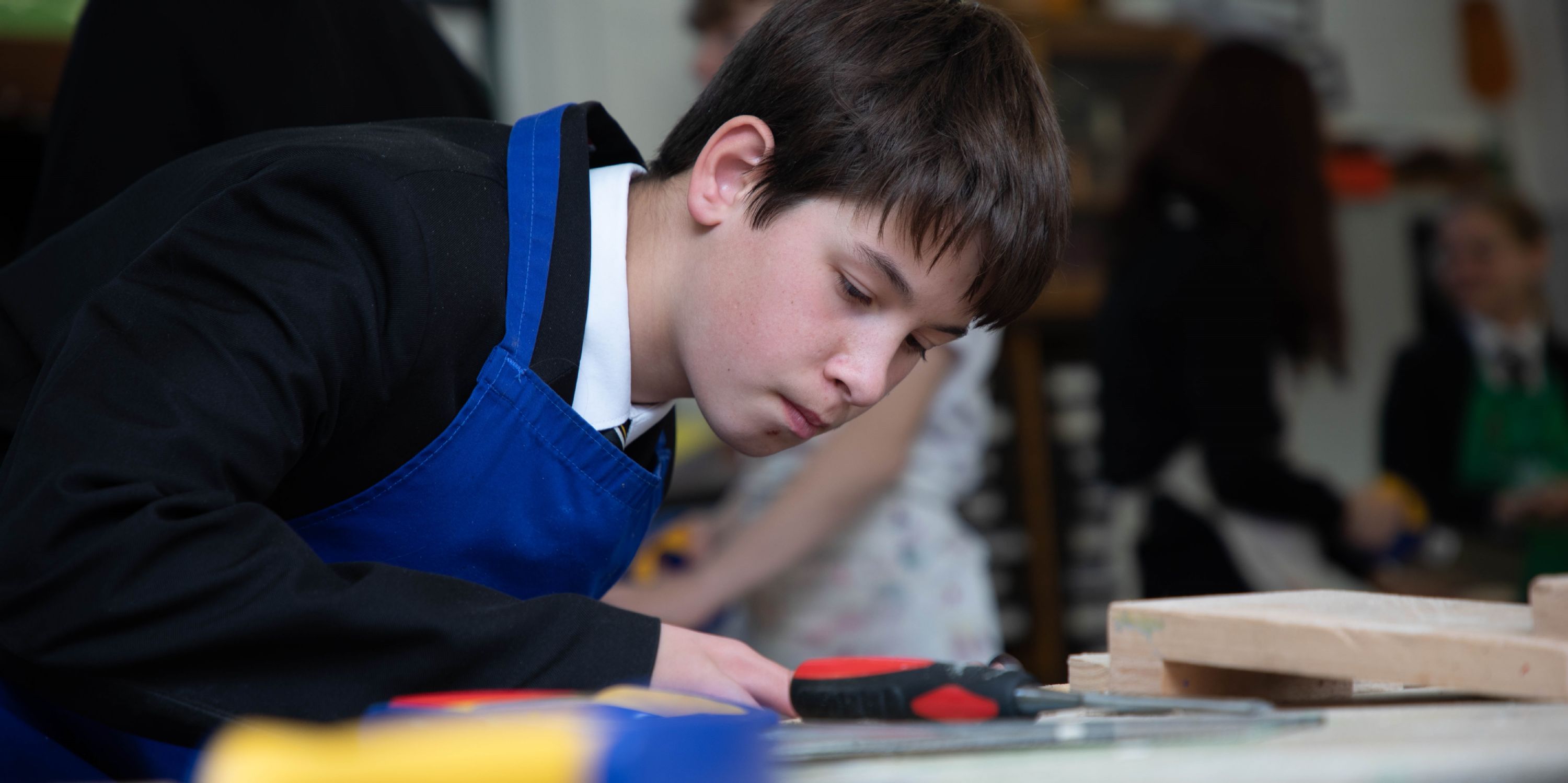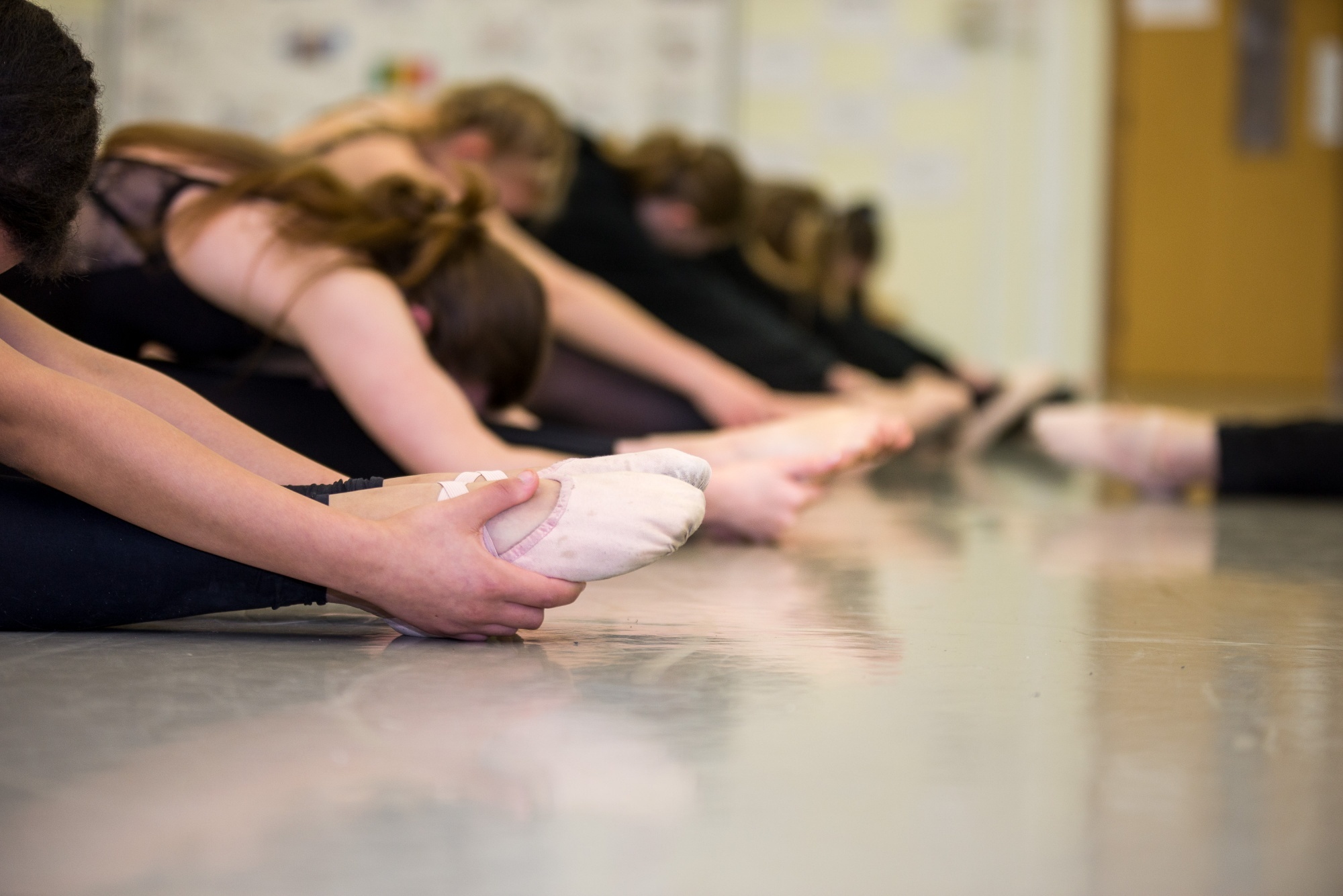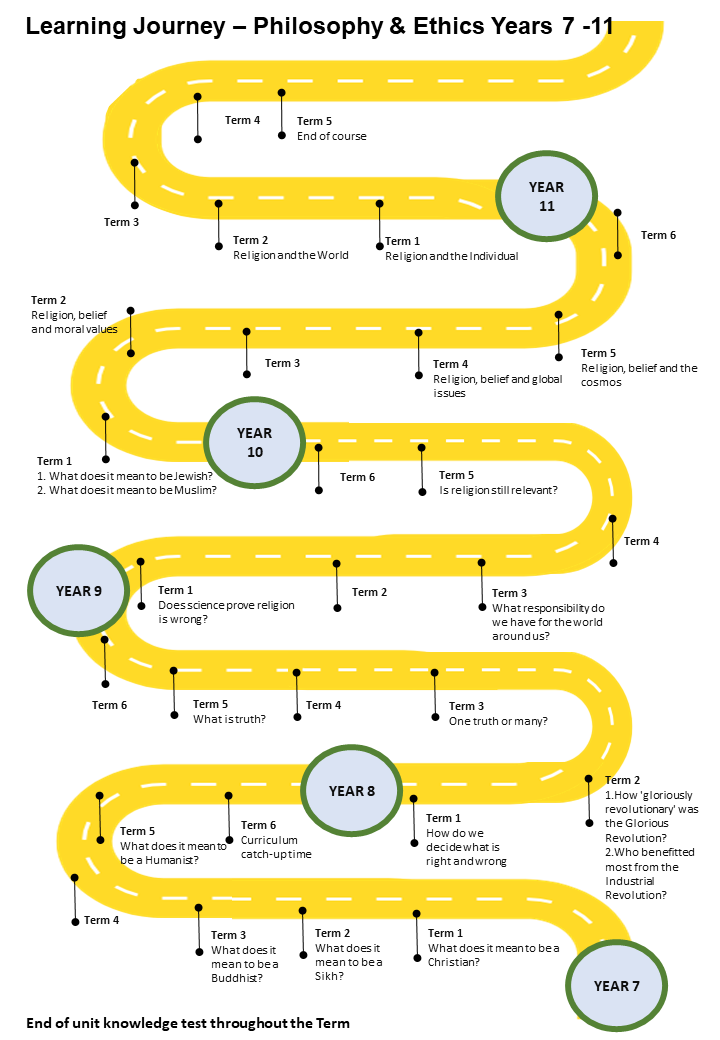Philosophy & Ethics (inc. Religious Studies)
Philosophy & Ethics Department Curriculum intent
At The Buckingham School, the Philosophy and Ethics curriculum aims to give our students valuable insights into the diverse beliefs and opinions held by people today, in order to aid students’ own personal development and to support an understanding of the spiritual, moral, social and cultural questions that surface again and again in their lives. The study of Philosophy and Ethics encourages our students to explore and challenge their assumptions about what we are, how we think, and the nature of the world around us. Across all stages, we nurture well-rounded individuals who challenge stereotypes, promote cohesion and reject extremism. Above all, the Philosophy and Ethics curriculum encourages our students to value both themselves and the communities in which they live.
Central to our Philosophy and Ethics curriculum are the three core behaviours of Respect, Responsibility and Reflection. These values are embedded in all three Key Stages, with students learning to respect the beliefs of others, as well as of themselves, understanding their responsibilities as members of human society, and reflecting on their place in the world.
Key Stage 3: Engagement – Learning with Kindness and Curiosity
Our Key Stage 3 Philosophy and Ethics curriculum is designed to spark curiosity, encourage critical thinking, and actively engage students in exploring some of life’s most profound questions. Through thought-provoking discussions, real-world case studies, and creative learning experiences, we aim to make philosophy and ethics relevant and meaningful to our students. By presenting diverse viewpoints and contemporary ethical dilemmas, we invite students to form and articulate their own ideas while respecting others.
The Philosophy and Ethics curriculum introduces students to the beliefs, practices, and moral frameworks of major world religions and philosophical traditions. Through the study of diverse worldviews, students learn to show respect for people of different faiths, cultures, and opinions. Lessons encourage students to take responsibility for their own ideas and behaviour by developing empathy, tolerance, and moral reasoning. Regular opportunities to discuss ethical dilemmas and explore “big questions” help students reflect on their own values, identity, and role in society, laying the foundation for respectful dialogue and personal growth.
Key Stage 4: Being Independent – Taking Responsibility for Learning and Growth
At Key Stage 4, our Philosophy and Ethics curriculum is designed to cultivate intellectual independence and personal responsibility in our students. We encourage learners to think for themselves, question assumptions, and engage critically and respectfully with complex philosophical and ethical issues. Through structured debate, extended writing, and reflective enquiry, students develop the confidence to form, defend, and refine their own viewpoints. Our curriculum empowers them to take ownership of their learning, fostering independent research skills and thoughtful self-expression. By promoting autonomy in thought and action, we prepare students not only for academic success, but for thoughtful engagement with the moral challenges of modern life.
Key Stage 5: Exemplary – Habitually Showing Integrity, Reflection, Responsibility and Respect
At Key Stage 5, our Philosophy and Ethics curriculum is designed to develop exemplary students—independent, intellectually curious, and ethically reflective young adults. We aim to cultivate high-level critical thinkers who can engage with complex philosophical arguments, analyse ethical theories with precision, and articulate their views with clarity and depth. Students show deep respect for the complexity of ideas and traditions that shape human understanding, and take full responsibility for their reasoning during structured debate.
Philosophy & Ethics department ethos
In Philosophy and Ethics, we create a learning environment where respect, responsibility, reflection, and kindness shape how we explore life’s big questions, how we treat one another, and how we grow — as thinkers, individuals, and members of a diverse society.
We uphold Responsibility
We take responsibility for how we think, speak, and act. In studying moral and philosophical issues, we recognise that our beliefs and actions carry consequences — for ourselves, for others, and for the world. We take ownership of our learning by engaging with complex ideas, forming reasoned arguments, and staying open to challenge and growth. Through respectful dialogue, we learn that responsible thinking includes listening, questioning, and being accountable for our words and choices.
We show Respect
Philosophy and Ethics asks us to engage deeply with different world views, religious traditions, and philosophical perspectives. We show respect by valuing these differences and treating all ideas — and the people who hold them — with fairness and dignity. Our classrooms are inclusive spaces where respectful debate and open enquiry help us better understand each other and the world we live in.
We practice Reflection
We reflect not only on what we believe, but why we believe it. Philosophy and Ethics encourages us to ask, “What kind of person do I want to be?” and “How do my values shape the way I live?” Through careful study and self-enquiry, we think critically about our assumptions, consider the impact of our choices, and grow in wisdom and self-awareness. Reflection helps us connect intellectual exploration with personal development.
We lead with Kindness
Kindness is essential to meaningful discussion. Whether exploring controversial issues or personal beliefs, we approach each other with empathy and compassion. We support one another in moments of uncertainty, challenge, and discovery. Through kindness, we build a learning community where everyone feels safe to express themselves, ask questions, and be heard.
We believe Philosophy and Ethics Matters
This subject helps us make sense of complex moral, spiritual, and philosophical issues — both timeless and contemporary. It encourages us to think clearly, argue respectfully, and live thoughtfully. We believe that Philosophy and Ethics equips students not just with knowledge, but with the character and compassion needed to thrive in a diverse and changing world.
Careers linked to philosophy & ethics
Careers in Philosophy and Ethics
- Philosophy and Ethics Teacher: Teaching Philosophy and Ethics in schools, from primary to secondary levels, is a primary career path.
- Chaplain: Providing spiritual guidance and support in various settings, including hospitals, schools, and universities.
- Religious Leader: Serving as a pastor, priest, rabbi, or similar role within a religious community.
- Higher Education Lecturer: Teaching Philosophy and Ethics at universities or colleges.
- Missionary: Working to spread religious beliefs and provide services in different cultures.
- Campus Religious Coordinator: Organising and coordinating religious activities and programs on university campuses.
Careers using Philosophy and Ethics
- Social Worker/Counsellor: Philosophy and Ethics studies can provide valuable insights into human behaviour, ethics, and social issues, making graduates well-suited for social work and counselling roles.
- Journalist/Media Professional: The ability to analyse complex texts, understand different perspectives, and communicate effectively are valuable in journalism.
- Human Rights Advocate/Victim's Advocate: Philosophy and Ethics can foster an understanding of ethical principles and human rights, making graduates well-equipped for these roles.
- Historian/Archivist: Philosophy and Ethics involves a study of religious history and the development of various beliefs, skills that can be applied to historical research and archival work.
- Legal Profession: Philosophy and Ethics graduates may find work in law firms, focusing on legal issues related to religion or religious institutions.
- Community Development Worker: Philosophy and Ethics can provide a foundation for understanding communities and developing programs that address social needs.
- Charity Fundraiser/Administrator: Philosophy and Ethics graduates can use their understanding of social issues and religious organisations to work in the charity sector.
assessment
Accordion content
further reading
Accordion content
Learning journey
revision resources
Accordion content











